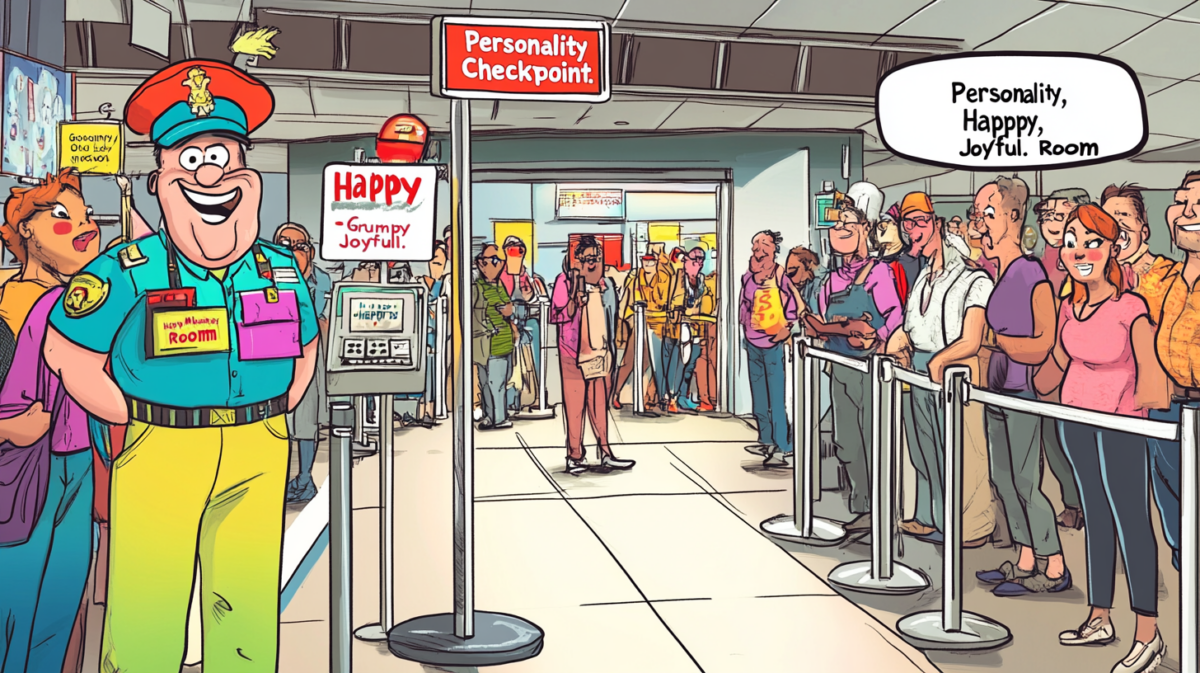“Grumpy passengers will be detained until further notice,” says TSA’s new Chief Happiness Officer.
The Joyful Journey Initiative Takes Flight
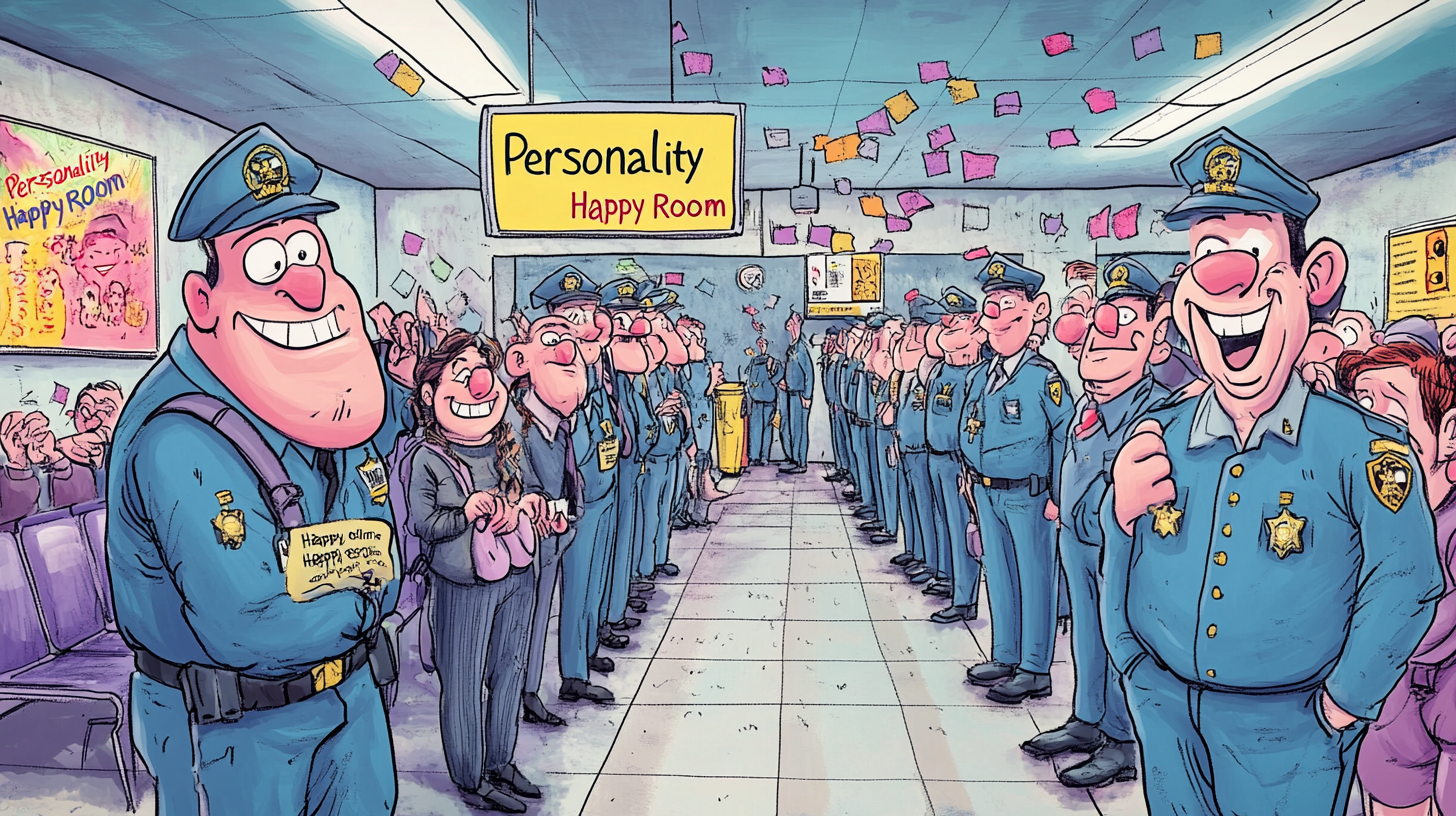
In a bold move to enhance airport security and passenger experience, airports nationwide have introduced “Personality Checkpoints” to ensure that all travelers are in good spirits before boarding their flights. This unprecedented measure aims to detect and detain any sour moods that could potentially dampen the high-flying atmosphere of today’s air travel. Because nothing elevates safety like enforced cheerfulness.
“We noticed that our advanced AI scanners could detect hidden items but not hidden frowns,” explained Felicity Smiles, the newly appointed Chief Happiness Officer at the Transportation Security Administration (TSA). “So we decided to take security to the next level by ensuring everyone is positively beaming before takeoff. After all, a smile is just a passport with better lighting. emotional intelligence
The ‘Happy Room’: More Sunshine, Less Security Line
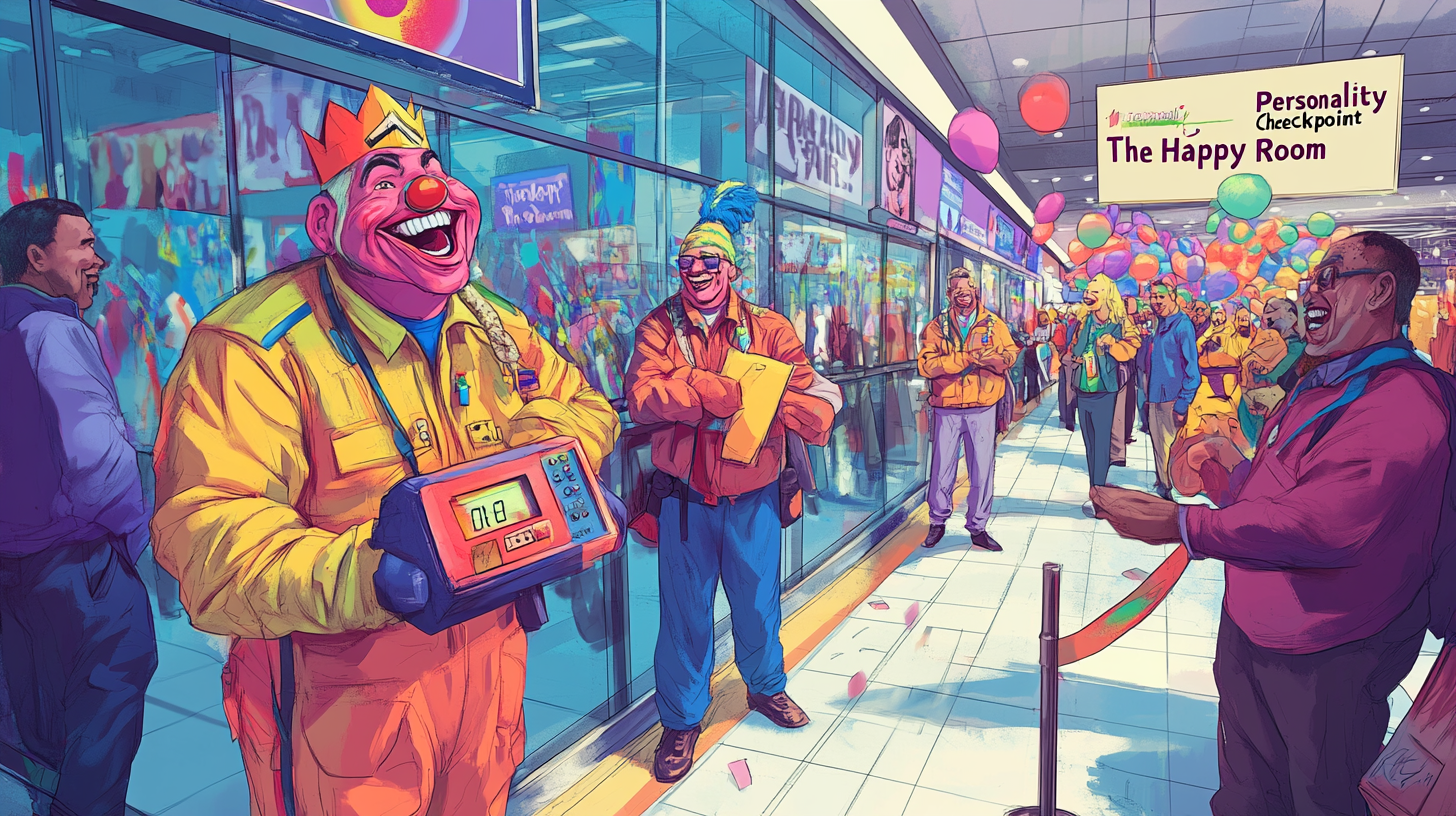
Passengers who fail to flash a genuine smile at the Personality Checkpoints are escorted to “The Happy Room,” a brightly colored chamber filled with motivational posters, nonstop feel-good music, and an ever-enthusiastic life coach on standby, armed with an arsenal of affirmations and an uncanny ability to ignore eye rolls.
“I was running late for my flight, and the next thing I knew, I was being read inspirational quotes by someone named ‘Harmony,'” recounted business traveler Mike Grumbleton. “I missed my meeting, but I did leave feeling oddly uplifted. And slightly concerned for humanity’s future. positive psychology
The TSA assures that time spent in The Happy Room is for the greater good. “We just want to turn that frown upside down,” said Smiles, adjusting a pin that read “Smile Patrol.” “And if it takes a hundred choruses of ‘Don’t Worry, Be Happy,’ then so be it. Besides, who doesn’t love an unsolicited pep talk?”
Biometric Mood Scanners and Advanced Smile Recognition
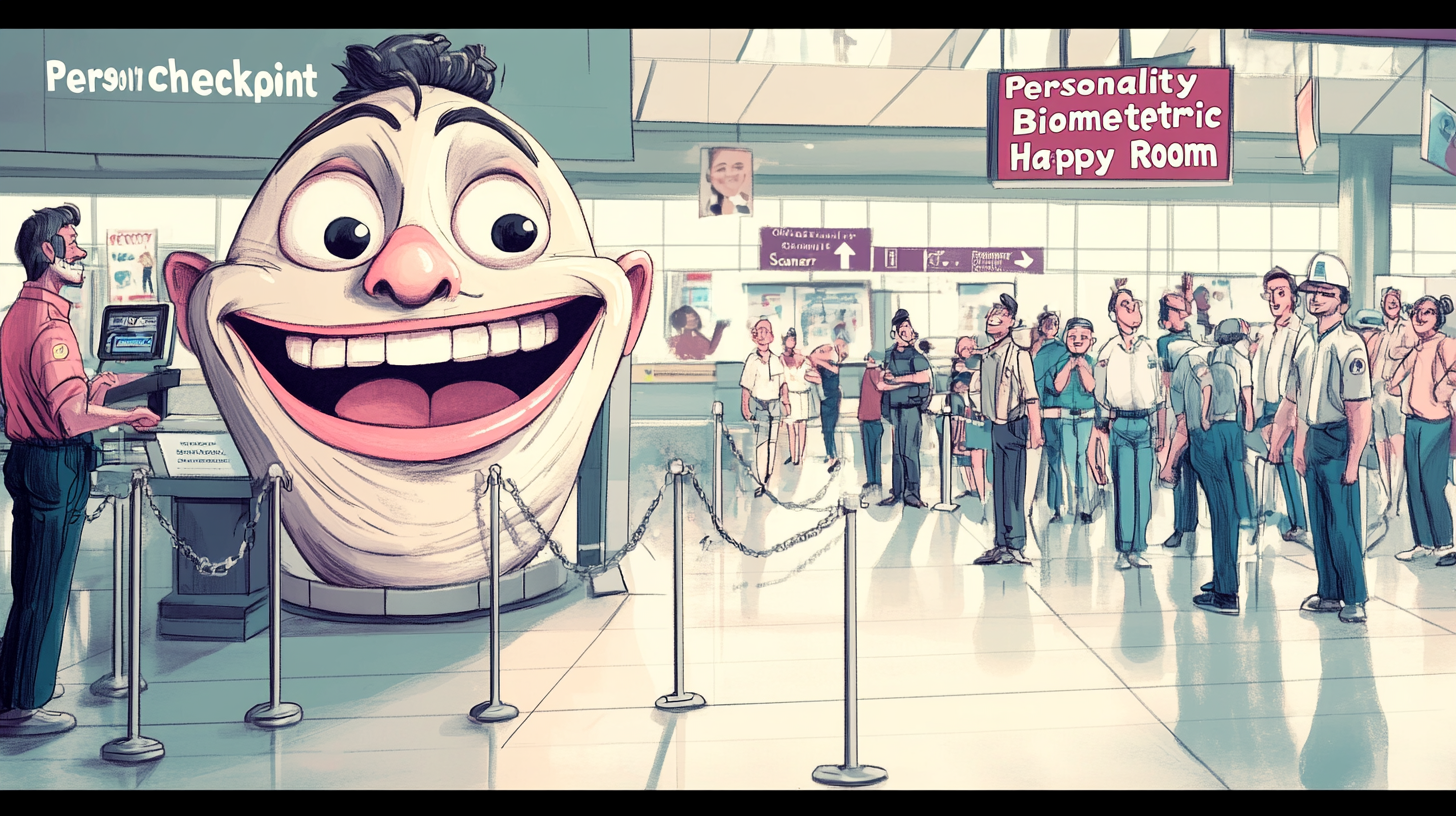
Leveraging cutting-edge technology, airports have installed Biometric Mood Scanners that analyze facial expressions, tone of voice, and even the sparkle in a passenger’s eye—which, according to research, directly correlates with their willingness to buy overpriced airport snacks. Advanced Smile Recognition software determines if a grin is sincere or merely a forced baring of teeth.
“We’ve partnered with leading manufacturers to ensure our scanners are 99.9% accurate in detecting sarcasm,” noted tech specialist Joy Techster, demonstrating a device that beeped furiously as she said, “We’re so excited about this groundbreaking technology. facial recognition Fake smiles are so last season.”
Passenger Reactions: A Mixed Bag of Emotions
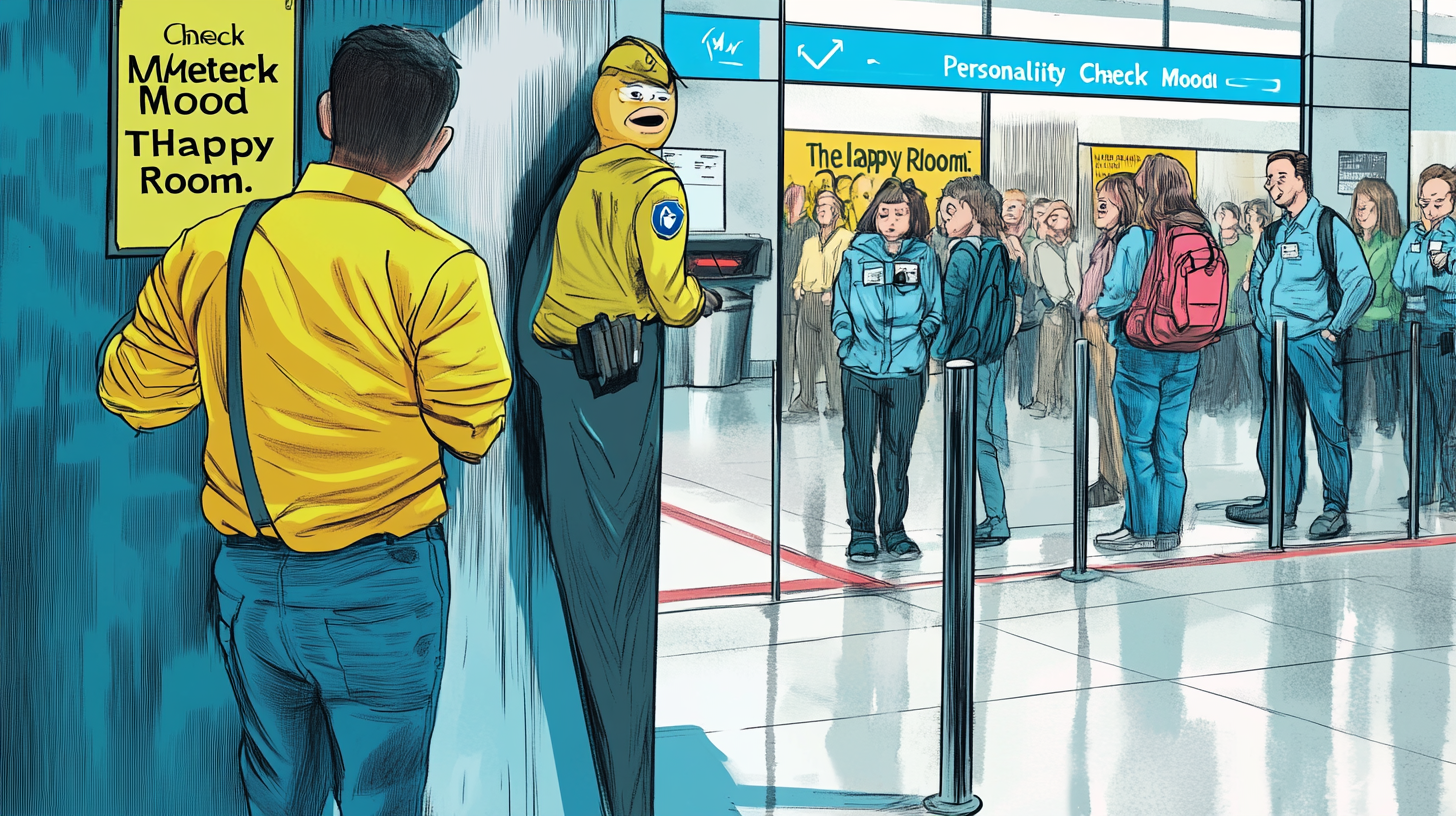
While some travelers appreciate the efforts to keep the skies friendly, others are less than thrilled. “I just don’t see why my neutral face is a problem,” said a befuddled Sarah Straightface. “Not everyone walks around grinning like they’ve won the lottery.”
Another passenger, Mona Lisa, claimed her enigmatic smile caused an error in the system, resulting in a three-hour delay. “I guess my smile was too mysterious for them,” she shrugged. passenger rights
Frequent flyer and stand-up comedian Chuckles McGee disagrees. “I think it’s great! Finally, my jokes have a captive audience. They can’t leave The Happy Room until they laugh at my punchlines!” he quipped, adding, “It’s like performing at the world’s most cheerful detention center.”
Airlines Join the Movement
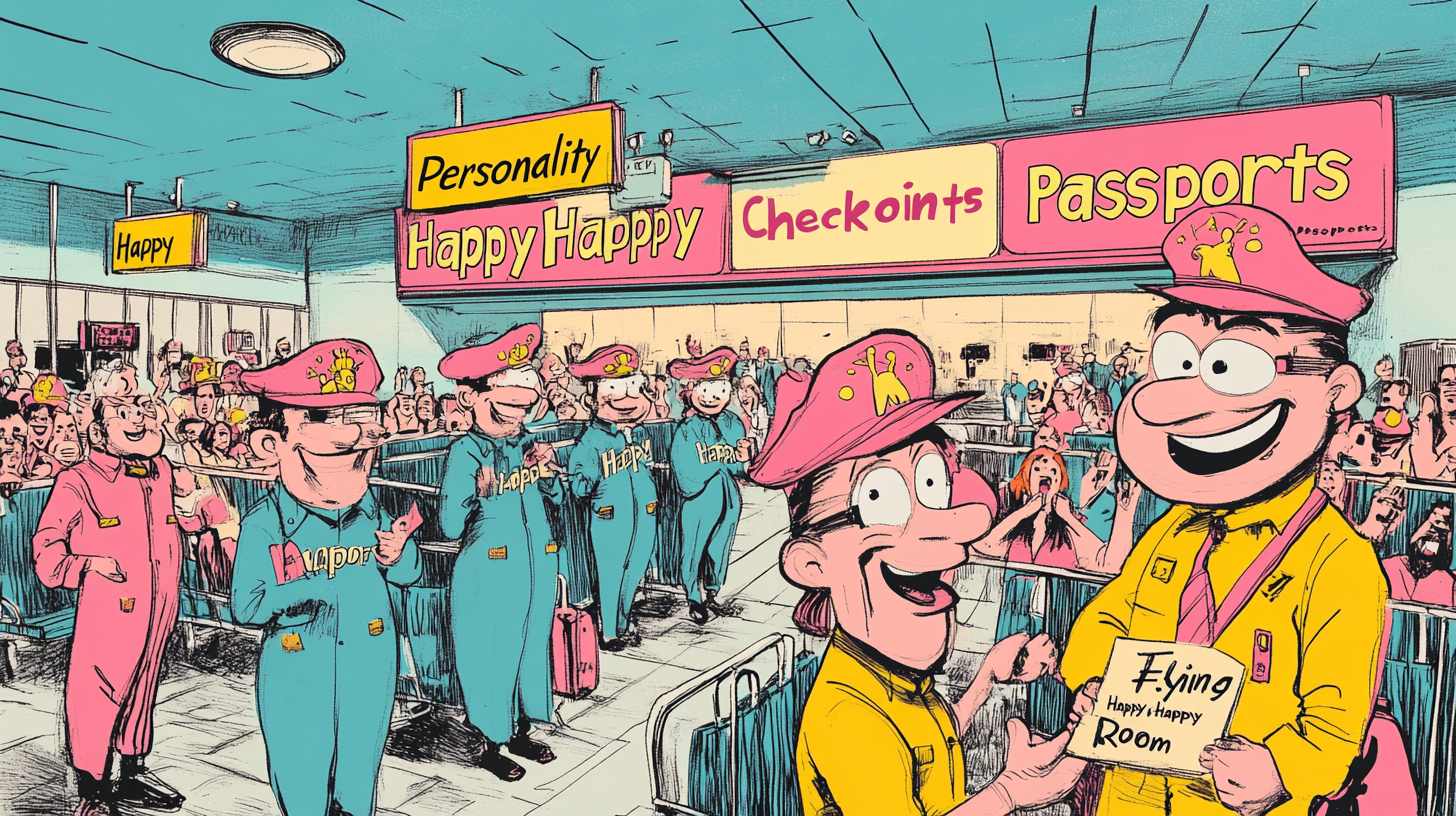
Airlines are embracing the initiative by introducing mandatory in-flight karaoke, compliment exchanges between passengers, and mid-flight group meditation sessions led by the pilots themselves.*
“We believe a happy passenger is a loyal passenger,” said airline representative Polly Positive, her grin possibly permanent. “And if we can make them forget about the baggage fees, seat selection charges, and the cost of breathing our air with a group sing-along, that’s a win-win.”
*”Don’t worry, the autopilot’s got this. Probably.” airline policies
Looking Ahead: The Future of Friendly Skies
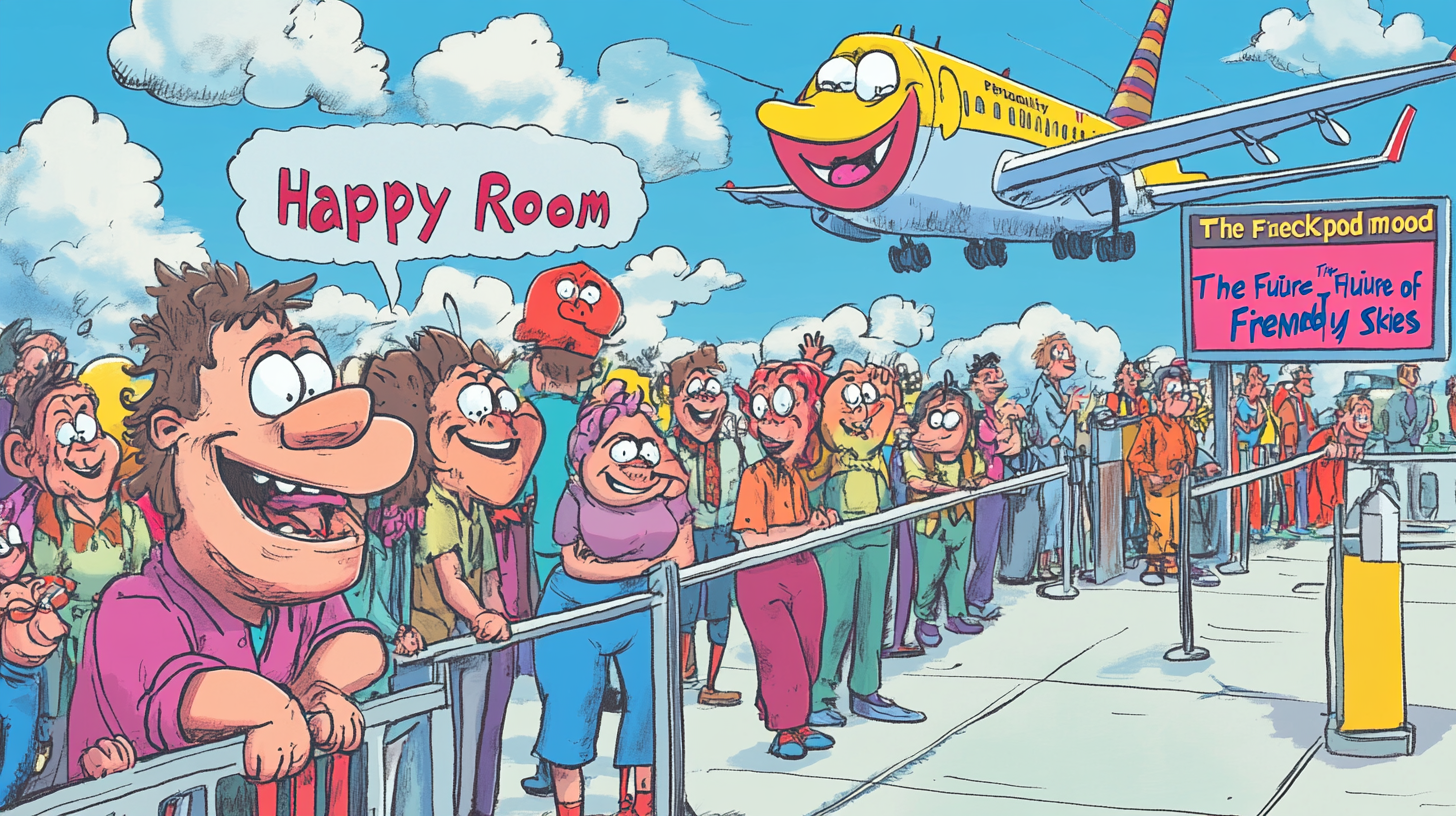
The TSA hints that this is just the beginning. Plans are underway to introduce “Optimism Officers” on every flight and implement “Gratitude Galleries” in terminals where travelers can reflect on things they’re thankful for before boarding. Other initiatives include “Positive Pat-Downs,” where security agents offer compliments while checking for prohibited items, and “Delight Delays” designed to keep passengers cheerful during unexpected hold-ups.
“We’re redefining security,” declared Smiles. “It’s not just about physical safety anymore. It’s about ensuring emotional well-being at 30,000 feet.”
Experts Weigh In
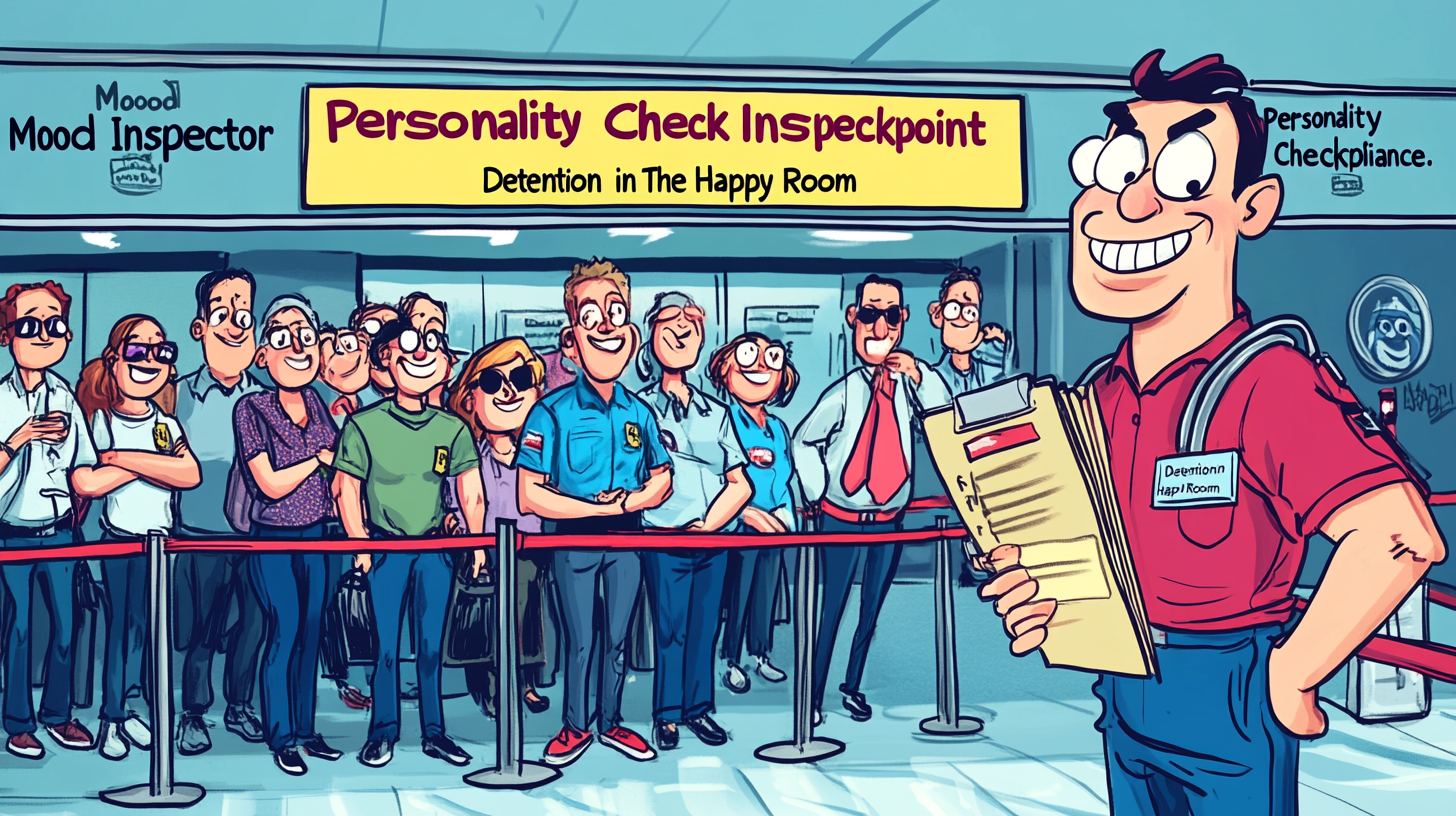
Psychologists are intrigued yet cautious. Dr. Sunny Disposition commented, “While promoting happiness is beneficial, enforcing it might have unintended consequences. Not every cloud needs a silver lining mandated by airport security.”
Economists predict a surge in sales of teeth-whitening products as passengers strive for the perfect smile. “It’s the trickle-down effect of enforced happiness,” noted analyst Penny Wise.
Meanwhile, privacy advocates express concerns over the intrusive nature of mood-scanning technology. “Scanning my bag is one thing, but scanning my soul? That’s a bit much,” argued advocate Serenity Now. surveillance concerns
Final Thoughts: Smile Like You Mean It
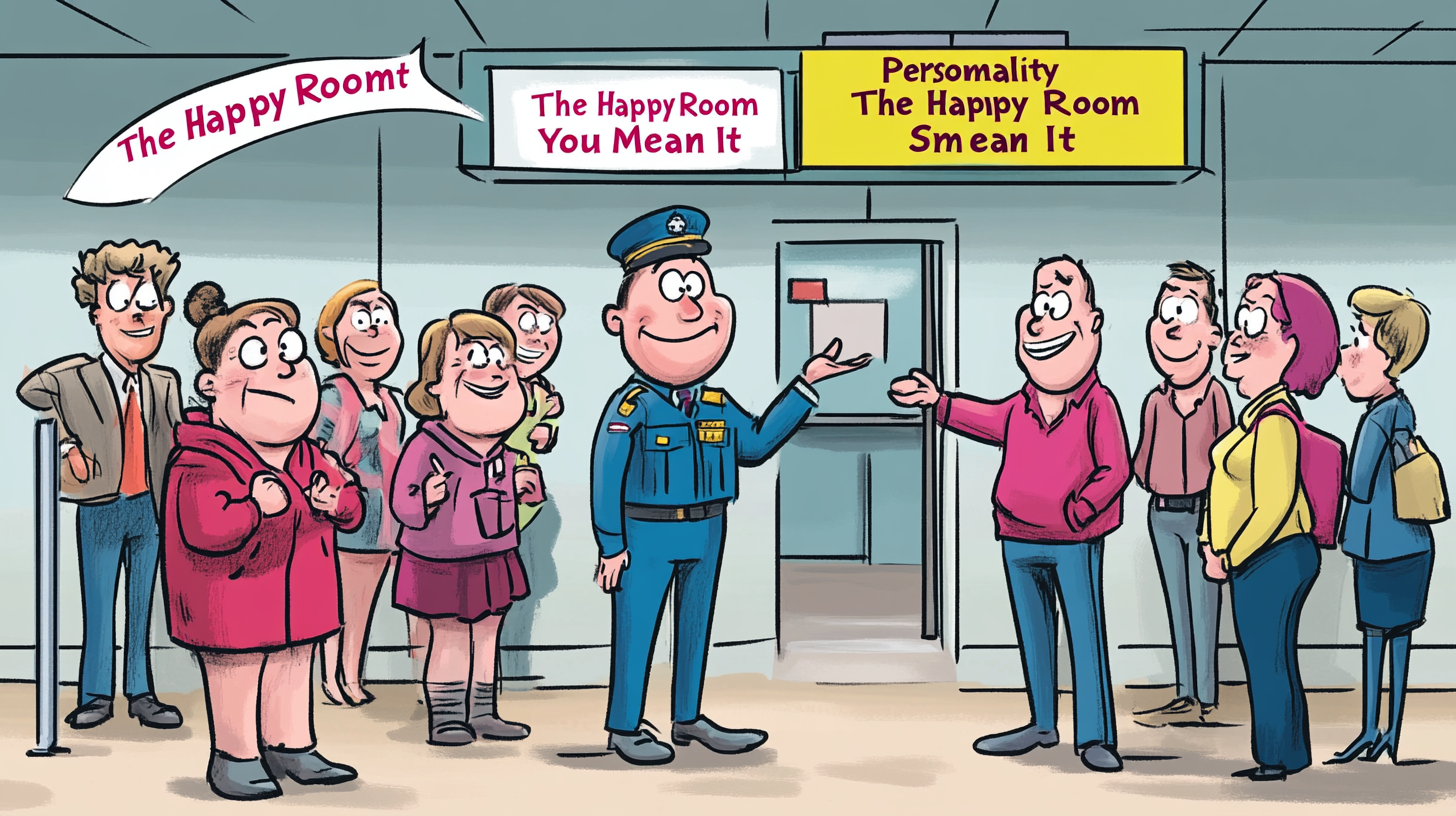
As we soar into this brave new world of enforced cheerfulness, remember: a smile is your boarding pass to happiness—or at least to your next flight. So, pack your bags, your ID, and your best grin. And if you can’t muster one, don’t worry—there’s always the “Instant Smile” kit at the airport kiosk, complete with a complimentary eye twinkle.
And remember, in the words of the TSA’s latest slogan, “If you’re not grinning, you’re not winning!” Because in the friendly skies, happiness isn’t just encouraged—it’s required. So, next time you’re at the airport, flash those pearly whites and embrace the joy—or at least pretend to until you clear security.
For more satirical takes on aviation, visit The Takeoff Nap.

